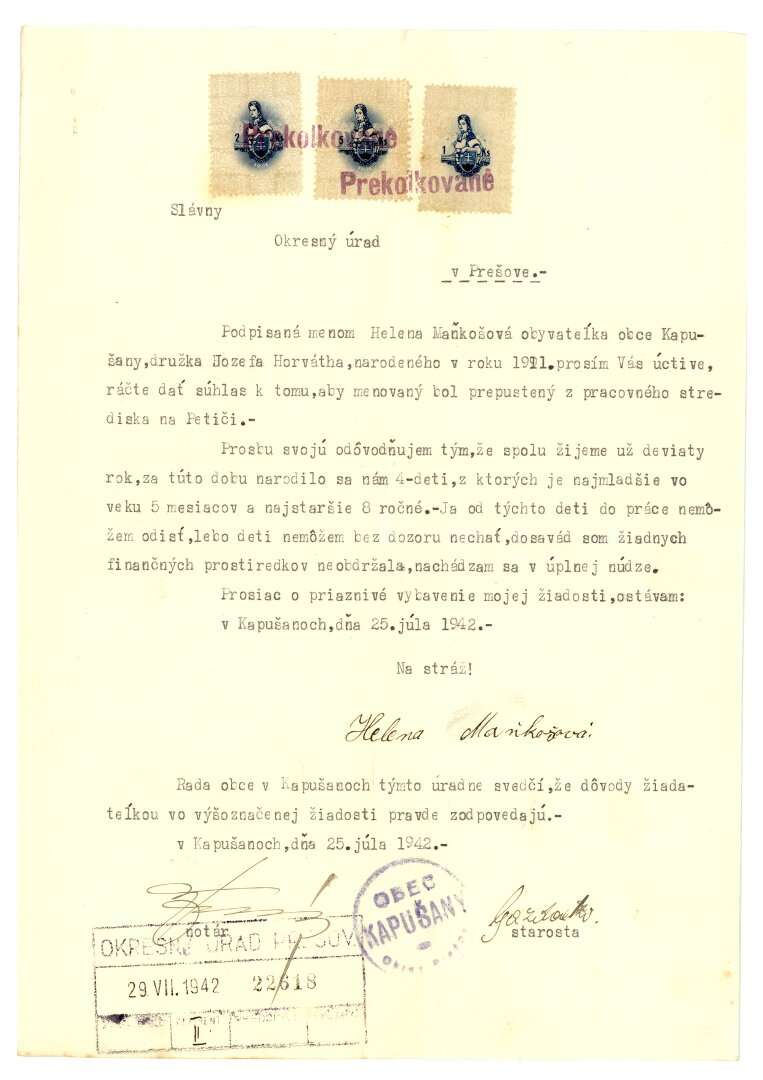Slávny
Okresný úrad
V Prešove.-
Podpisaná menom Helena Maňkošová obyvateľka obce Kapu-
šany, družka Jozefa Horvátha, narodeného v roku 1911. prosím Vás úctive,
ráčte dať súhlas k tomu, aby menovaný bol prepustený z pracovného stre-
diska na Petiči.-
Prosbu svojú odôvodňujem tým, že spolu žijeme už deviaty
rok, za túto dobu narodilo sa nám 4-deti, z kterých je najmladšie vo
veku 5 mesiacov a najstaršie 8 ročné.- Ja od těchto deti do práce nemô-
žem odisť, lebo deti nemôžem bez dozoru nechať, dosavad som žiadnych
finančných prostiredkov neobdržala, nachádzam sa v úplnej núdze.
Prosiac o priaznivé vybavenie mojej žiadosti, ostávam:
v Kapušanoch, dňa 25. júla 1942.-
Na stráž!
[vlastnoruční podpis] Helena Maňkošová.
Rada obce v Kapušanoch týmto úradne svečí, že dôvody žiada-
teľkou vo výšoznačenej žiadosti pravde zodpovedajú.-
v Kapušanoch, dňa 25. júla 1942.-
starosta







